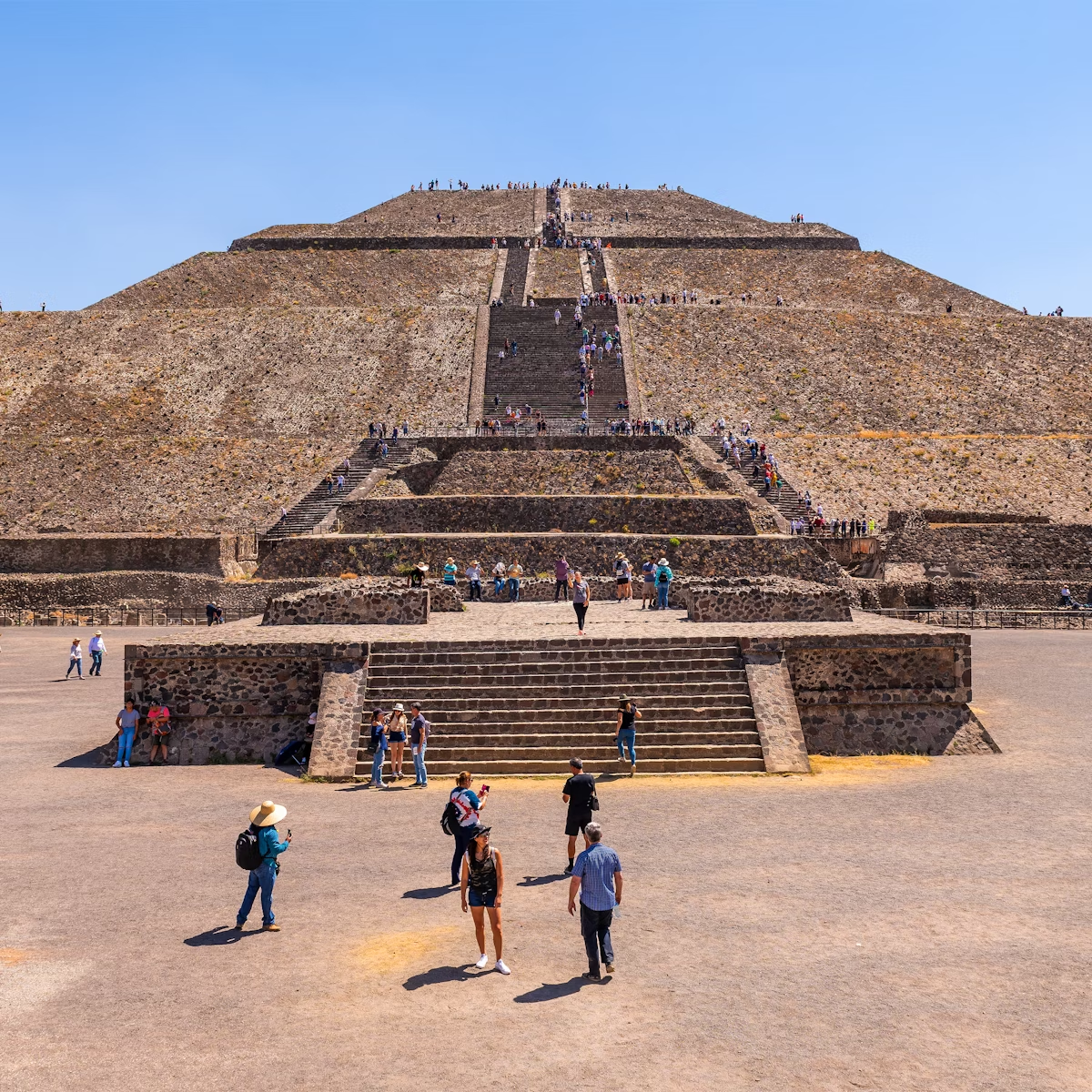This expansive square complex is believed to have been the residence of the city’s supreme ruler, and its rooms may have been the city’s administrative center. Four wide walls topped by 15 pyramids enclose a huge open space, with a major pyramid, the Templo de Quetzalcóatl, built around 250 CE, to the east. The pyramids represented mountains during rituals where the plaza, representing the world of the living, was deliberately flooded.
Skeletal remains of 137 human victims have been found under and around this temple. DNA tests reveal they were brought from diverse parts of Mesoamerica to be sacrificed. Teotihuacán was a multiethnic city formed into different neighborhoods.
In 2003, heavy rains sculpted a sinkhole beneath La Ciudadela to reveal a tunnel 17m underground, installed with an impressive miniature landscape representing the underworld. The tunnel was decorated with fool's gold to represent the starry night sky and pools of mercury to depict lakes. A vast collection of ritual treasures was also discovered, including eye-shaped crystals, jaguar sculptures and crocodile teeth-shaped diorite.






